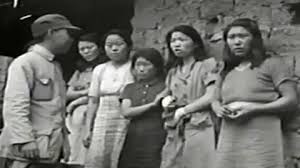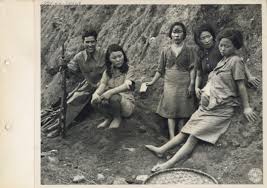The Japanese Occupation’s Impact on South Korean Women: A Legacy of Pain and Resilience.
The Japanese occupation of Korea from 1910 to 1945 inflicted severe damage on the Korean Peninsula, affecting every element of Korean society. For South Korean women, the occupation, and especially World War II, were periods of enormous misery and institutional cruelty, with long-term consequences that are still felt today. One of the saddest chapters in this history is the exploitation of “comfort women”—a euphemistic phrase for the women, predominantly Korean, who were forced into sexual servitude by the Japanese Imperial Army throughout the war.

Historical Context.
Japan’s imperial ambitions drove it to conquer Korea in 1910, establishing the Korean Peninsula as a strategic and economic colony. Throughout the occupation, Koreans endured harsh suppression of their language, culture, and identity, while Japan sought to utilize Korea’s resources for wartime purposes. As Japan became more involved in Asian conflicts, such as the Second Sino-Japanese War (1937-1945) and World War II, there was an increased demand for labor and military support. This demand also applied to women, who were coerced into different sorts of forced labor, including sexual slavery.
The Tragedy of “Comfort Women”
The plight of “comfort women” is one of the most agonizing aspects of the Japanese occupation. From the late 1930s to the end of World War II, tens of thousands of women from Korea, China, the Philippines, and other Asian countries were forced or duped into working in brothels for Japanese soldiers. While exact figures are contested, it is estimated that up to 200,000 women were subjected to this barbaric regime. The bulk of these women were Korean, as Korea was one of Japan’s greatest colonies and a reliable source of labor.

These women were frequently kidnapped from their homes or recruited with false promises of employment, only to find themselves incarcerated in military-run “comfort stations.” There, they were subjected to physical, psychological, and sexual abuse, often with no way out. The trauma of this exploitation had a severe impact on the survivors, leaving many with lifelong physical and emotional scars.
Post-war Silence and the Struggle for Justice.
Following Japan’s surrender in World War II, the topic of “comfort women” was mostly overlooked for decades. The survivors endured a stigma that inhibited them from speaking out, and the South Korean government, preoccupied with postwar rehabilitation and internal conflicts, did little to address their situation. For many years, atrocities against Korean women were kept secret from history. Post-war Silence and the Struggle for Justice.

Following Japan’s surrender in World War II, the topic of “comfort women” was mostly overlooked for decades. The survivors endured a stigma that inhibited them from speaking out, and for many years, atrocities against Korean women were kept secret from history.
Not until the 1990s did the subject of “comfort women” attract widespread notice. In 1991, Kim Hak-sun became the first Korean survivor to publicly testify about her experience as a “comfort woman,” shattering a lengthy silence and igniting a global movement for recognition and justice. Her testimony sparked further pressure on Japan to acknowledge and apologize for its wartime atrocities. The South Korean government, preoccupied with postwar rehabilitation and internal conflicts, did little to address their situation.
The Long Shadow of Occupation.
Japan’s occupation and the “comfort women” system have had an ongoing impact on South Korea. The survivors, many of whom are now old, have emerged as strong icons of resistance and resilience. Their continued struggle for justice exposes colonialism’s persistent wounds and the difficulties of correcting historical wrongs.
In recent decades, the South Korean government and human rights organizations have lobbied Japan for formal apologies and reparations. While there have been some attempts toward reconciliation, including a 2015 agreement between South Korea and Japan, many believe Japan’s measures have been insufficient and lack genuine sorrow. This unsolved issue continues to cause friction in Japan-South Korea relations, hampering diplomatic and economic cooperation between the two countries.
During World War II, the Japanese occupied Korea and exploited South Korean women, leaving a legacy of trauma, resistance, and the battle for justice. The stories of the “comfort women” demonstrate their fortitude in the face of unthinkable hardship. Their bravery in breaking decades of silence has ignited a global call for justice, casting light on the darker sides of wartime history and reminding the world of the importance of accountability and healing. As these women continue to strive for acknowledgment, their struggle serves as a stark reminder of war’s long-term impact on women’s lives.

